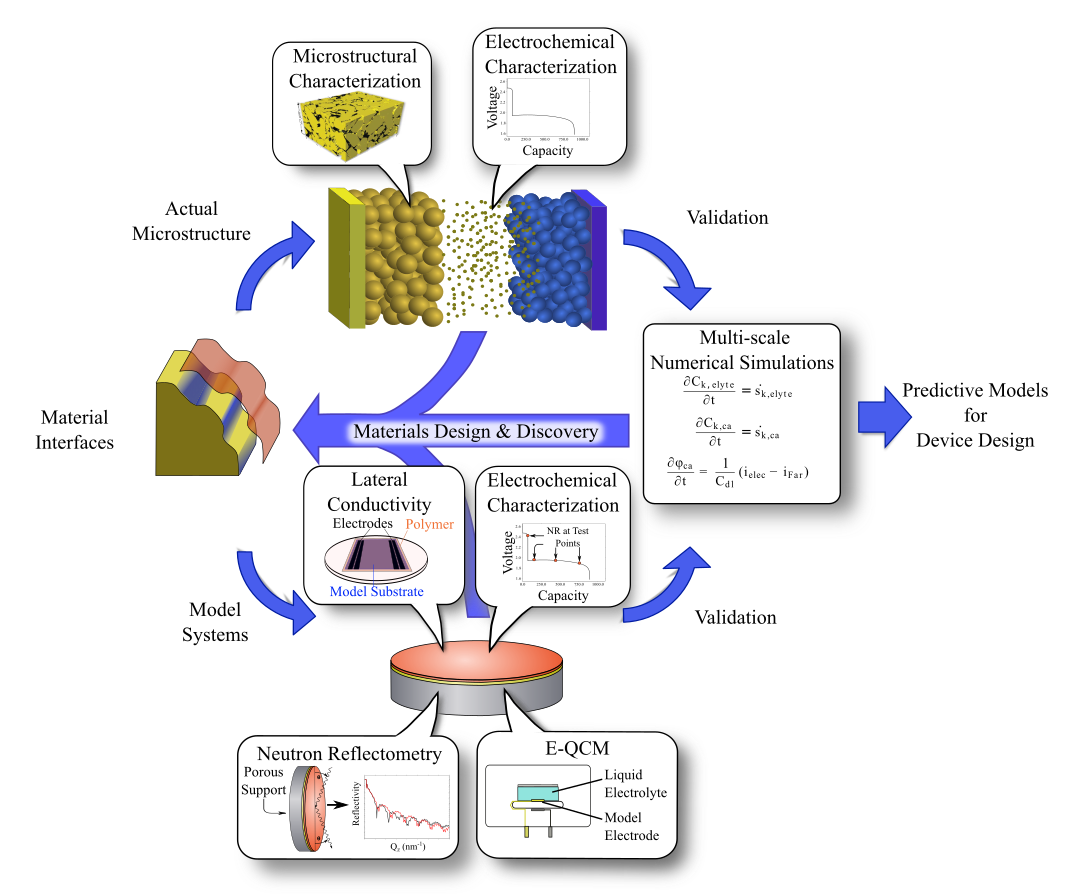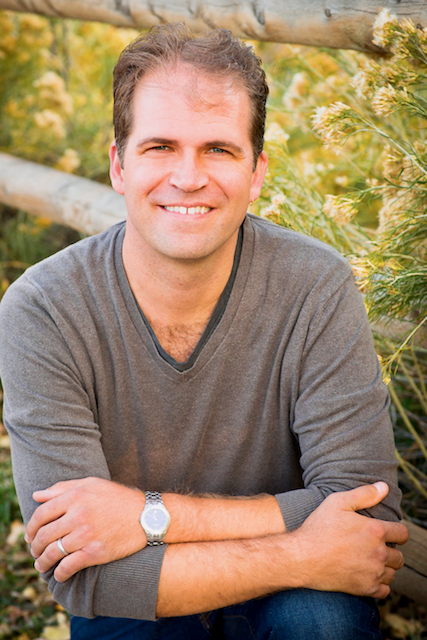Steven C. DeCaluwe
Associate Professor and Director of Graduate Studies
Department of Mechanical Engineering
Education and Professional Experience
-
I joined the Department of Mechanical Engineering in 2012 following an NRC postdoctoral fellowship at NIST in Gaithersburg, Maryland. My work at NIST used neutron scattering experiments to study solid electrolyte interphase formation in lithium-ion batteries and water uptake in thin-film polymers for PEM fuel cells.
-
My PhD is from the University of Maryland, College Park, in 2009. Dissertation: "Quantifying the role of ceria as catalyst in solid oxide fuel cell anodes." My work at UMD involved electrochemical experiments, in operando physical chemistry diagnostics, and multiscale simulations.
-
I taught first and second grade for three years in Nashville, Tennessee, before attending graduate school.
-
My Bachelor of Science degree is in Elementary Education and Mathematics from Peabody College at Vanderbilt University in 2000.
Research Overview
Visit the CORES Research Group site to learn about projects, publications and group members!
My research interests center on clean energy and water systems, with a focus on electrochemistry and interfacial processes. My group's work combines fundamental experiments with numerical simulations to study the chemical, thermodynamic and fluid mechanic processes occurring at material interfaces and in reacting flows. Via fundamental insight into these processes, we can design and improve technologies to enhance the quality of life for diverse populations and ease the impacts of human resource use on critical ecosystems and habitats across the globe.
The figure below gives an overview of my research philosophy, how the different activities in my group fit together, and the iterative nature of scientific discovery and engineering design:

Teaching Overview
Visit the DeCaluwe Teaching page to learn more about courses taught, class activities, and other teaching and mentoring activities.
My teaching philosophy is heavily influenced by three key concepts:
- Constructivist learning theory
- Active learning techniques
- A growth-based (rather than "fixed") mindset
I believe that all students are capable of success, but that deep, permanent learning requires communication among all class participants, which allows the instructor to create engaging and meaningful learning experiences that challenge students at the appropriate level and connect prior experiences and concepts to new ideas.
In my classrooms you will see a mixture of different activities, including not just lecture but also small group work, individual problem solving, and open-ended conversations. These are designed to foster greater student engagement in the learning process, promote interaction, and provide critical, real-time feedback and insight into student understanding of course concepts and mastery of skills.
Service
One of the great gifts of working in academia is that we are given space and encouraged to help shape the communities in which we work and live. Here are some of my main service activities. Please email if you want to discuss any of them!
- Chair: Mechanical Engineering Diversity, Inclusion, and Access Committee.
- Associate Editor: ASME's Journal of Electrochemical Energy Conversion and Storage
- Organizing Committee / Local Chair: 2022 American Conference on Neutron Scattering
- Board Member: Colorado School of Mines Shared Instrumentation Facility
- Director: Colorado School of Mines Rocky Mountain Environmental XPS Facility
Engineering Values
Visit my page on Science and Engineering Values to read more about the values that shape my work. At their core, science and engineering are value-laden enterprises. As scientists and engineers, our work touches lives and impacts our environment on a very broad scope. Our work has implications for environmental sustainability, social justice, and public policy, among other spheres, and can be used to improve the lives of those around us. At the same time, poorly considered or perfunctory work that fails to fully consider its own impact can have significant negative consequences for those around us.
Three major values and themes that inspire my work are (i) Conservation Biology, (ii) Diversity, Equity and Inclusion, and (iii) Open Science. These ideas influence what work I do, how I carry it out and how that work relates to the world around me.
- Conservation biology is an interdisciplinary field devoted to preserving the Earth's biodiversity. This value provides a lens through which to interpret and apply my work. It also inspires a unique area of outreach to better connect engineers who design products with conservation biologists who can holistically evaluate their impacts.
- Making our teaching and research cultures more diverse, equitable and inclusive not only alleviates bias and inequality in our society but also improves the resulting science and engineering work and helps us better understand and communicate the impact of our work on those around us.
- Open science is an approach to improve the transparency, accessibility and reproducibility of scientific work. A more open process leads to greater collaboration, more sound science and usually greater impact. (A poignant quote from the linked source: "Articles with a preprint received higher Altmetric scores and more citations than articles without a preprint.")
Schedule

Contact
Brown Hall W410B
1610 Illinois St.
Golden, CO 80401
303-273-3666
decaluwe@mines.edu